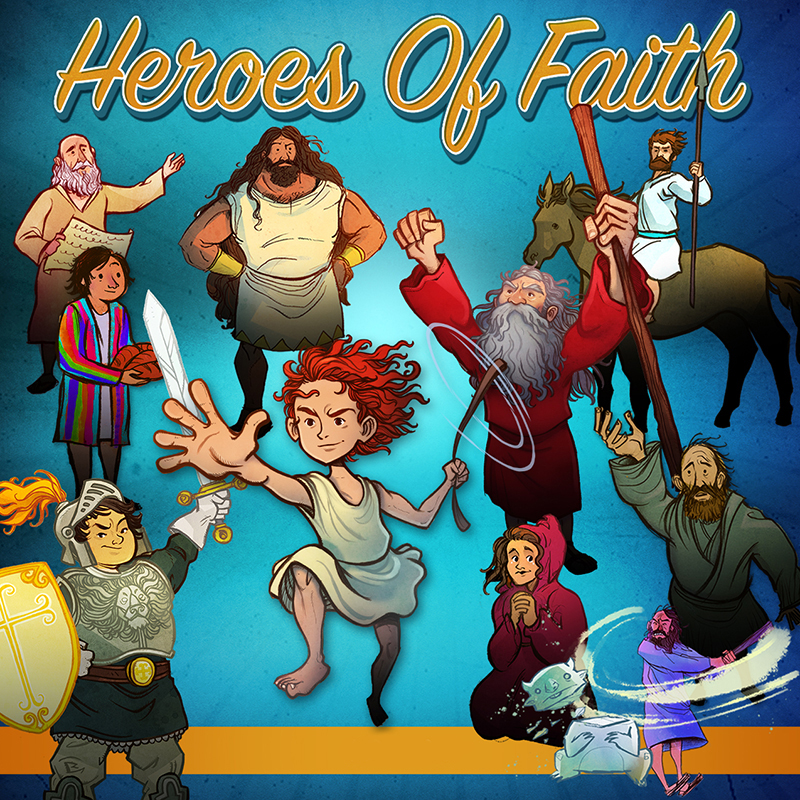Worship leaders are not superheroes, rock stars, or even your monk-like spiritual guides. They are people, men, and women who prepare a table with the hope of making Christ the host and main person of interest. In our modern worship models, we expect a flawless expression through a flawed human 52 weeks out of the year. On one hand, we want this person to be “real” or authentic, but God forbid that get in the way of our production. Sometimes, the role of serving as a church musical leader in worship gets lost in translation. There is a real human side to the activity of leading worship. We want the worship leader to be a visible leader who rallies us and expect our church to keep up with whatever is hip in “ministry models” out there. Has your worship leader been fitted for his or her cape yet? This article addresses 5 questions on worship that fall under the umbrella ‘Are Worship Leaders Superheroes?’
Questions on Worship: Are Worship Leaders Superheroes?
There are some really tough questions worship leaders have that often do not get answered, except under a rosy filter at times. Some will whine and complain. There is never a valid occasion to throw rocks at the beloved Bride, the Church. However, there are occasions to sit down as a family and talk among ourselves about what should improve. We desperately need safer, deeper dialogue about how the artistic leaders in our life of faith fairs as family members. Why? These are the ones who write our songs, lead our prayers, and forms our liturgy. From a historical perspective, much more of what is written by the musician at your church will outlast the sermon series you recently finished. The questions we are answering in this article are from actual worship leaders. The hope is that brothers and sisters who are worship leaders will have a better dialogue with their leaders and churches. Hopefully, this will lead to positive changes for all involved and answers to common questions on worship!
Questions on Worship: Who made up the rules of what Worship Leaders should do and be?
Superheroes don’t live by the laws of physics. A large portion of our local churches now demand stadium rock vibes that match the emotion of the last night at summer camp. The worship leader who has 150 people in front of him is now expected to recreate the excitement of a Passion concert, attract seekers like an evangelist, and still be as spiritually deep as a monk who lives in a desert cave. The rules are stacked against this worship leader, even if he leads in front of thousands with a professional band behind him, fog machines, and concert lighting. After all, for the superpowers to be exactly what you hear on a CD or see at a huge conference seem to be thwarted by a sort of kryptonite present in the average house of worship.

Imagine that you have a visible role at church with a responsibility that everyone has their own opinion about and yet there are no clear-cut rules. Beyond these tensions, where do these rules originate from, anyway? To start off, the title “worship leader” means different things in different settings. In some places, a woman can never hold that job and the title of Pastor or Reverend is exclusively male. In other traditions, there are prayers only an ordained pastor can read, not the worship leader. In America, we have a large group of churches where the tradition seems to be a worship leader is backed up by a band and leads the congregation from a stage. The lights and fog machines and instrumentation give the impression that it is a rock concert. Of course, not all churches are even close to this. Some meet in buildings with two rows of pews and a chancel area that has an altar and lectern and such. In our modern church movement, Christian symbols are supposed to be subtle, if present at all. The interesting thing is that you can find the modern worship model being expressed in almost every denomination in America. How can so many who differ on major theological points adopt a model so similar?
Like any good superhero mythos, the worship leader has a past. The history of our modern worship goes back to the 1960s and 1970s with guitar-laden hippies singing in flip flops, which spread to youth groups everywhere. By the 1990s, with the prime days of Willow Creek Community Church near Chicago and Saddleback Community Church in Southern California, we saw another major movement called the “seeker movement.” The terms “seeker-driven” and “seeker sensitive” were there to try to set up a place of worship that intentionally looked more like a corporate center than a worship center. You used modern music because it “attracted” non-churchgoers and movie clips or drama sketches were used to reinforce a main thematic point that the sermon presented. A worship leader in those types of settings lived under the rules that the seeker or un-churched person came first. The rules in the traditional setting were the opposite where gathering and sending are the aims.
While the seeker movement reached its peak in the 1990s, the “praise and worship” movement with Hillsong and Vineyard soared as well. So, the same modern music was not being used for “attraction” or to make sermon points, but for prayer and worship in churches. In the early 2000’s, Passion’s Chris Tomlin and the British wave of the likes of Matt Redman came to the scene. Now, this generation was about revivalist fervor set to stadium rock sounds—a youth-driven scene. Modern worship, as we know it today, was birthed. Every worship leader now had to lead from the guitar in 2001 and, by 2007, it seemed leading by electric guitar was even better. Hillsong United came to be. Stadium rock worked for so many. Now, we live with a mishmash of rules that are borrowed from the 1960s Jesus Movement, the 1980s to 1990s seeker movement and praise and worship movements, and the early youth-driven modern worship from the UK and college revival meetings like Passion.
There are a lot of blanks to fill in with the recent rise of the modern worship movement, but the expectation was set to see a worship leader get people excited in the thousands. The mixing on live worship CDs often attempts to capture the “room” of worshipers, even to the musical degradation of the tracks. The hard thing about worship leading today is that people want to feel a certain thing from the music the worship leader presents. If it feels right, the kudos are piled on. We program for “moments” like Willow Creek coined. We “attract” crowds then we hope for Holy Spirit moments to hit our church worship center as big and loud as a Passion stadium event in 2002.
In summary, the rules of who worship leaders are and what worship leaders do are based on tradition, theology and, for some new models for ministry that are still being adapted or formed. There is no single answer, which is why even the term “worship leader” may mean different things to different people. While the Bible mentions music and singing in Paul’s letters and in the Old Testament, it does not prescribe a specific set of rules that are universally accepted. In short, these rules are all over the map and are still being written, as well as debated. The rules, like the speed of a comic book hero, are a moving target and worship leaders often live in the confusion of what they really are. Leaders of churches rarely think of how their (very human) worship leaders have to wrestle with such complex expectations.
Questions on Worship: What Does the Bible Say About Worship Leaders?
If there are superheroes, surely the Bible is a place to find them. What does the Bible actually say about worship leaders? Leaders are held to a higher standard, especially in the case of those who teach. However, the office of “worship leader” is not found in the Bible. In fact, it is more biblical to have “musicians” and “musical directors” as officers, than to use the term “worship leader.” To add to this confusion, the Bible never calls your pastor a “communicator”—a popular term now widely used. The word “pastor” means shepherd. The leaders of the church are not great communicators, marketers, artists, or business leaders. Shepherds care for the flock. The worship leader role has been confused because few even see the biblical calling of their own pastor with clarity.
Both ‘gifting’ and ‘calling’ are biblical issues too large to fill this space. For the sake of our discussion here, we can believe that ‘gifting’ informs us of our ‘calling.’ The musical and communicative gifting needed to be a worship leader are in the artistic arena. Plainly, one does not simply get up one day and play music and sing well enough to lead a group of congregants effectively. Even superheroes have to learn to control their amazing powers. We might put up talent, then forget that the person in the spotlight of leading worship has never been coached to deal with the newly crowned influence.
In the era of King David of Israel, teams of musicians and servants of the Levites tended to the Tabernacle worship and, later, the temple of Solomon. It makes sense to compare the role of the modern worship leader to those who served in the Old Testament worship practices. We see order, training, excellence and artistry, as well as craftsmanship involved. But, we have to be careful. We live in a time when Christ is our ultimate Priest, and all of us as believers serve as priests. All Christians, in fact, are worship leaders, leading others to worship Jesus Christ. The guy or gal in front of the church is just one from that group of people. Biblically speaking, there is no “special” office other than helping the rest of the body of Christ pray at worship gatherings. Well, that is a very special task and honor! But, it is something all of us do in some way. We each help each other worship our Creator when we function properly as the Church.
Even though there is a unique gifting expression and calling, biblical requirements for a worship leader should be like any other leader in the local church. In the Pastoral letters, it seems these requirements are pretty simple. I remember years ago when one pastor explained to me that the shocking thing about the prerequisite list to become an “elder” is that it can include just about anybody! If it didn’t, we would not have a supply of leaders of any kind to serve our local churches. Just like other church leaders are like the rest of us, so are these “unique”—sometimes quirky—musical prayer leaders of the church. For instance, when the Bible says we are not to be married to more than one wife, that means a polygamist is not really a good choice for your worship team. It does not mean, however, that leaders are perfect. Think about it. The bar is set lower than we realize, making most of us qualified to lead if God and the church call us to serve.
Questions on Worship: How Do You Stay Authentic When You Get in a Fight With Your Spouse Right Before Church?
Sometimes the best thing about being a superhero is that you get to wear a mask! Imagine if, as a worship leader, everyone in the congregation could read your thoughts and insecurities. What if there were no mask at all? What if even your glimmer of spiritual doubts become exposed? This sounds like a nightmare and makes it clear why they say that the fear of death is not as great as the fear of public speaking. Add an instrument and spiritual expectations to the formula and wearing a mask sounds like a good plan, indeed.

When that moment comes and you and your spouse have it out before church, it might be hard to be human in front of the entire congregation. After all, it is not always appropriate to share every emotion in every setting. Does this mean you are “faking it” or simply acting when you choose to perform a duty—even leading worship? Superheroes or not, worship leaders have to deal with the normal stuff the rest of us deal with and then get up and be emotionally vulnerable before hundreds of people.
Like any job, you have to perform it, whether you are a school teacher who might be agitated at your little pupils when they act up, or a police officer trained to de-escalate a situation. Sometimes what you might be feeling inside needs to be set aside for another moment. No one complains at a school teacher’s skill in keeping cool with an unruly class and we praise the abilities of a police officer who can hear insults from disorderly people, yet take the higher road and defuse a troublesome scene. We may think that teachers or cops are superheroes, but they have to decompress after they get off work and recharge. Worship leaders are the same in that regard. Emotions have to be dealt with.
The emotions inside are who you really are, but are you not also the choices you make as far as how and when you reveal these emotions? The key here is to think of skill as the bridge. Emotional intelligence is a learned behavior, a choice to leverage your skills in emotional management to lead yourself and others. It is very human to come to church in a bad emotional state, but does that mean my church has to hear about that from the platform? Or, is it better to save that for close friends?
There is a difference between transparency and authenticity. Authenticity is a choice. Transparency is just letting everyone in and everything out. One takes purpose, training, and skill. The other is simply a switch. No one wants their worship leader to be fake, but is the platform a place to air and express pending issues? On the other side of the coin, if it seems like the family can be let in a bit to the cracks in the armor, then that might allow all of us to feel more human. Leadership is not about perfectionism. It is about modeling. So, in some cases, things have to be maturely managed, while in other cases it may be an opportunity waiting to be unleashed. The question is this: Are we ready to actually have people be vulnerable who are in leadership over us?
Questions on Worship: What Does a Worship Leader Do About Conflict With the Pastor and Unfair Expectations? When Do I Leave?
Even good superheroes fight each other in the comics. In any normal relationship, conflict is something to always manage. But, what if your boss is your spiritual director? What if your personal life and even how much you tithe are being scrutinized? You have little power as a staff person in the local church these days and there is a realistic fear that losing your job means you also may lose your spiritual home—your small group, your kid’s friends, your spouse’s support.

There will be times when expectations are enormous. It’s like a young pitcher signed with the ball club. The expectations are high for ticket sales and amazing stats. Oh, and his arm must last at least a few seasons. For a worship leader, often the pressure is to bring in people, immediately improve a lackluster service production, and have plenty of staying power. The stamina of a superhero comes to mind. The ability to plan amazing services and have everyone feel great is a tough call. But, I have witnessed instances where pastors will literally tie offering amounts to the worship leader’s performance. I recall one unbelievably true story here; a worship leader candidate was given a spreadsheet by the pastor. On it was how many hands were lifted and other visible expressions for the service he led as his audition. It is the wrong use of metrics that will defeat a worship leader every time.
In my own experience, one lead pastor I served came in one morning and put both his palms on the table. “Rich, our music is too good.” He went on to explain how his pastor friends who visit would always compliment how good the music is. Well, that was a problem I surely had never had before. Many questions came to mind: Was there a competition with the pastor in his mind? Did I offend the wrong person? Some would say it’s a great thing to have great music. But, expectations for the worship leader may sometimes be simply impossible to meet. You can be in a situation where it seems like everything is great from your own perspective, however, if your leadership is not communicating clearly what they measure, then you may not even be on the same page. This is a danger zone. No news is bad news.
Conflict happens at times because of ego or misunderstanding of roles. Many times, I have heard worship pastors say that what they get paid for is not the music they do, but the pastoring. Yet, they have enormous musical leadership responsibilities as part of their jobs. Administrative tasks can pile up and, if not managed well, can cause conflict, too. Asking for help may fall on deaf ears. Given the fact that most worship leaders today are part-time, it makes it even tougher. It’s a view that only the visible tasks matter. Either there is no time for relational investment or it is not part of the job at all—only the stuff you do in front of people. All of these, if not spoken and worked through, can cause conflict.
If you are a worship leader and do not know the worship values of your teaching or lead pastor, you are at a huge disadvantage. It is hard to accomplish an expectation with something that involves feelings more than facts. Let’s face it, how a service goes is measured in feelings. Yes, there is the one pastor I mentioned who checked off physical responses and added them all to a spreadsheet. But, most live in the nebulous as far as expectations. This is a recipe for conflict and disaster.
When the conflict arises, sometimes you are left with little choice but to move on. It is not a wrong thing to separate if issues of theology and values clash. You have to be on the same page for ministry to work well. It is more likely, however, that there are unwritten rules as to what is expected and, as you discover these, it may be too late to fill the gap. A forced exit is a common thing. That is a nicer, “churchier” way to say the word “fired,” which we don’t like at all. Heck, I know of a guy whose termination was communicated on social media by his pastor! There are many who “are called to something new” these days.
When you separate as a worship leader, even if laid off, there are no benefits you can claim. Religious workers are exempt from unemployment insurance. More and more I hear of churches not offering severances of any kind. Leaving is not easy. The human side of this is more than losing a job, the worship leader may also be losing his church and spiritual family. This can be sort of an unintended excommunication, even if you leave the job by choice. The pain of this cannot and should not be understated.
Like any human who is not a superhero, moving on will happen at some point. What many think is their family ends up being simply an employer. It is better if the emotional and spiritual toll are factored into the equation given that ministry is more than a job. For the worship leader, today’s church is more fickle than ever. That makes it a precarious calling and possibly a foolish career choice. Yet, so many are gifted and longing with huge hearts to fill these roles. Do they know what they are getting themselves into?
Questions on Worship: What Does God Really Care About?
Out of 52 weekends a year, God does not care about how great your last few services came off. He cares about commitment, both to him and to the church. We love to judge things with myopic tendencies. What if we were to look at how a year went and were not so concerned with the past week? What if we realized our investment in individuals matters more to God than a perfect production? What if we saw that the intent of our heart and attitude were important, as well as our skill in front of people? Superheroes can do some incredible feats. Worship leaders seem to pull off a service with actual work most people will never see. That work is personal preparation, people investment, prayer, and dedication to serving others. God cares about the invisible as much as the visible. Do we?
It would not be a helpful discussion here if we did not look at some areas that could be improved upon by those whom the worship leader serves. We all want great worship services! Are we giving our worship leaders the kind of leadership they need? Are their needs being considered in the big and little decisions we make as a church?
10 Ways it’s OK for Worship Leaders to Stop Acting Like Superheroes
1. Take a break and observe a weekly sabbath!
2. Judge your success in people, not in performances.
3. Don’t do all the work alone. Build a team around you.
4. There will be issues bigger than you can handle. That’s OK!
5. Create if you are creative, otherwise, you will be worn out and lose your edge.
6. Sit in the congregation at times and enjoy others leading you in worship.
7. You have permission at times to feel like it’s a job—because it is.
8. Tap out if the situation is hurting you. Your soul is more important than your role.
9. Embrace empathy, even if others cannot handle your emotionality. God loves how you are made!
10. Never try to please people. As a church leader, you serve peoples’ needs, not their wants!
10 Ways Pastors and the Congregation Can Encourage Worship Leaders
1. Give freedom at times for the worship leader to take off the mask and share from the heart, not the script.
2. As a worshiper, my job is not to keep score of mistakes or mishaps.
3. It is not the worship leader’s job to worship for us.
4. Don’t expect your church worship service to feel like the big conference you just attended.
5. Worship Leaders need adequate time to do their work. If a pastor gets 20 hours to prepare a 30-minute sermon, how much time does a worship leader get to prepare 20 minutes of worship music and lead a team to do so?
6. Structure the worship leader for success. If your worship leader is great at music, don’t make him or her spend too many hours doing spreadsheets. Offer help.
7. Give very clear boundaries. Creatives of all types love to know the size of canvas that they will be painting on.
8. Communicate appreciation and validate when expectations are being reached. To keep a worship leader in the dark about performance is torture.
9. Allow the worship leader access to “catch” the vision. You will thank yourself later for that when you feel the wind to your vision come via a creative leader.
10. Allow for a healthy range of moodiness. The highs mean the lows will come soon after. Occasionally, energetic creativity will suddenly become mute. Give space.


